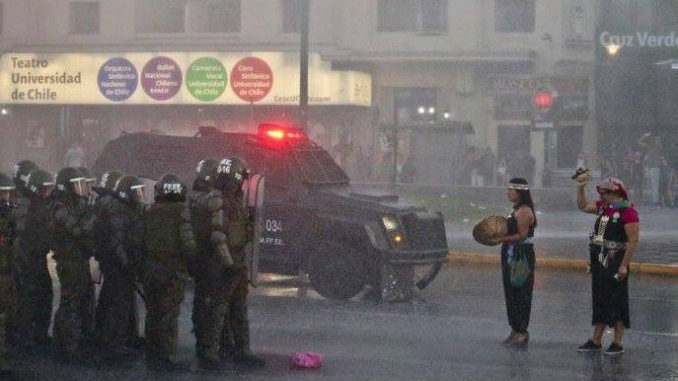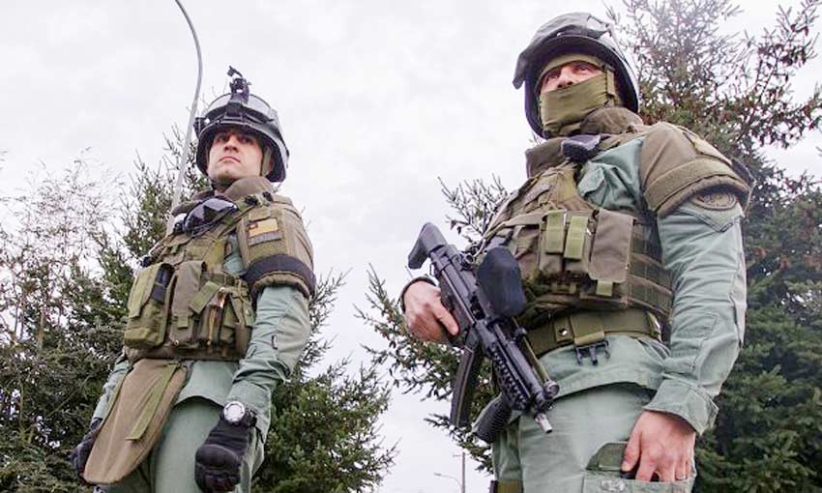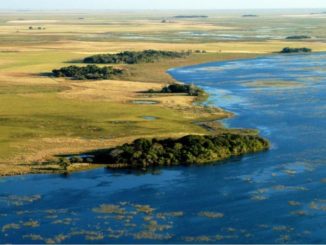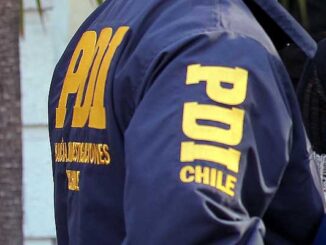
SANTIAGO – Chile’s President Sebastian Piñera has pledged an investigation into the fatal shooting of an indigenous Mapuche man during a confrontation with police that sparked protests and firebomb attacks and revived allegations of state persecution of indigenous people.
Camilo Catrillanca Marin, 24, was shot in the head on Wednesday during an operation against a suspected gang of car thieves in a rural community near the town of Ercilla, 480 miles south of Santiago in the restive province of Araucania.
Today: Indigenous Mapuche man, Camilo Catrillanca killed by the Chilean Jungle Commandos. An elite police force, operating in The #Araucania region, southern Chile against the Mapuches communities who are reclaiming ancestral land // #Mapuche #NativeAmericanRights #Chile pic.twitter.com/68QcuLsUoz
— Mapuche Indigenous (@mapucheNL) November 14, 2018
Catrillanca, the grandson of a Mapuche indigenous leader, was driving a tractor accompanied by a young boy when he was shot dead, according to locals.
In Santiago, following Catrillanca’s killing, protesters burned tyres and threw stones at police, while police fired tear gas and water cannons.
#Chile: Police crackdown outside and into campus of Catholic University in #Temuco. More than 50 arrests and students injured with lead bullets. https://t.co/TfSxsuCQU4 #CamiloCatrillanca #Mapuche pic.twitter.com/7yk3sA2ZLs
— ubique (@PersonalEscrito) November 16, 2018
Pinera described the killing as “lamentable” but gave his backing to the police unit that carried out the operation.
“The government will spare no means to get to the truth of what happened, and has requested the exclusive deployment of a prosecutor to this case,” he said in a tweet, adding “we reaffirm the right of police to pursue crimes and their right to defend themselves when attacked.”
Respecto a lamentable muerte de comunero Camilo Catrillanca: Gob agotará medios para investigar verdad de lo ocurrido, solicitando Fiscal de dedicación exclusiva. Al mismo tiempo, ratificamos deber de Carabineros de perseguir delitos y su derecho a defenderse cuando son atacados.
— Sebastian Piñera (@sebastianpinera) November 15, 2018
A church, holiday resort and a house were hit by early morning arson attacks in the Araucania region in southern Chile, a day after the killing of 24-year-old Camilo Catrillanca in a police operation.
No group has claimed responsibility for the attacks.

Opposition parties and rights groups denounced the shooting as evidence of Pinera’s “militarization” of the region to settle conflicts between multinational logging firms and indigenous residents claiming the land belongs to them.
Center-right Pinera, who came to office in March, announced an action plan of infrastructure investment and support for local entrepreneurs and tourism.
‘Jungle Command’: Piñera creates special force to tackle ‘terrorism’ in southern Chile
He deployed a special forces police contingent trained in Colombia and nicknamed Jungle Command, to enforce anti-terrorism legislation that aims to stop arson attacks on industry.
The Chilean state has long been accused of discrimination against the Mapuche people, who centuries ago controlled vast areas of Chile but have since been marginalized.
Pinera’s predecessor, Michelle Bachelet apologized on behalf of the nation to the Mapuche for the “horrors” of post-colonial abuse they suffered.
President Bachelet apologizes for ‘horrors’ done to indigenous Mapuche
Considered the earliest inhabitants of parts of Chile, the Mapuche fought against the Spanish conquerors and later the Chilean army after the country’s independence in the 19th century.
Their numbers were reduced to only 700,000, a fraction of Chile’s current population of 17 million.



